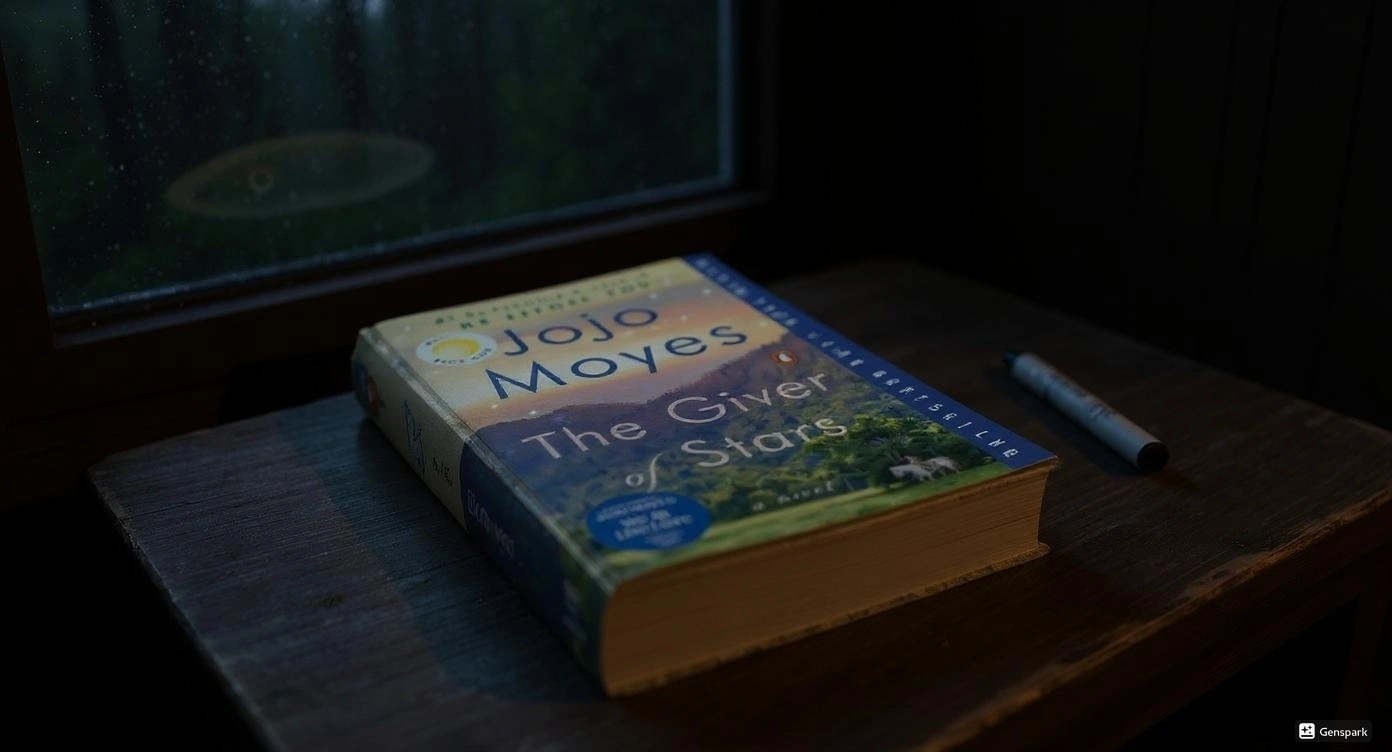I started reading A Different Kind of Power by Jacinda Ardern. I thought it would be a normal political memoir. But it was not what I expected. She talks a lot about empathy and leading everyone together. This idea caught my attention right away.
Satya Nadella and Neil Blumenthal both say empathy helps people create new things.
People like to hear stories where leaders are kind and caring.
Key Takeaways
Jacinda Ardern’s memoir shows that leading with empathy and kindness can make real change. It helps people feel close to each other.
The book feels like a personal talk. It shares true stories about hard times, doubts, and how she balances being a leader and a mom.
This memoir gives a new look at leadership. It values honesty and caring more than political drama or strong speeches.
Worth Reading?
Immediate Appeal
I have to admit, I started reading A Different Kind of Power by Jacinda Ardern late at night, thinking I would just skim a few pages. Instead, I found myself wide awake, flipping through chapters, feeling like I was listening to a friend share her struggles and hopes.
The book’s tone felt warm and honest. I could sense Ardern’s voice, not just as a leader, but as a real person who has felt fear, joy, and doubt.
The first thing that grabbed me was how quickly I connected with her story. She doesn’t hide behind political jargon. She talks about her nerves before big speeches, her worries as a new mom, and her desire to lead with kindness.
I noticed that many readers on Goodreads and Amazon mention this same emotional pull. Studies show that about 70% of emotion words appear in the first sentence of book reviews. That makes sense to me. I felt that urge to tell someone right away how the book made me feel.
Most reviews focus on how involved readers felt with Ardern’s journey, not just the facts of her career. I found myself rooting for her, even when I disagreed with some of her choices.
Note: If you want a memoir that feels personal and genuine, this one stands out. It’s not just about politics. It’s about what it means to care for others, even when the world feels harsh.
What Sets It Apart
I’ve read a lot of political memoirs. Most follow a formula: big achievements, a few setbacks, and plenty of polished speeches. This book surprised me. Ardern’s approach feels different.
She focuses on empathy and inclusion, not just policy wins. I saw her reflect on moments of doubt and vulnerability, which made her story more relatable.
The structure is informal. She jumps between personal stories and big events, making it easy to follow. I never felt lost or bored.
Unlike many memoirs, A Different Kind of Power by Jacinda Ardern doesn’t just list accomplishments. She shares her mistakes and what she learned from them.
Online reviews back this up. Linguistic analysis of hundreds of thousands of Goodreads reviews shows that readers respond most to books that make them feel involved with the characters and story. That’s exactly what happened to me here.
I’ll be honest, I didn’t expect to feel so invested. The book doesn’t have a chilling twist or a pulse-pounding plot, but it left me thinking about what leadership could look like if more people led with empathy. I have to give props to Ardern for making politics feel human.
Book Overview

Memoir Structure
When I started reading A Different Kind of Power by Jacinda Ardern, I saw the book was easy to follow. The chapters are short, so I could read them during lunch or before bed.
Each chapter talks about one main idea or moment. The book breaks big topics into smaller parts. This helped me not feel confused or stressed.
The chapters have numbers, so I always knew where I was in the book.
Every chapter begins with something interesting, tells a story, and ends with a lesson.
Subheadings help split up the writing, so it is not hard to read.
Here’s a quick look at how the structure helps:
Structural Element | Description | Reader Engagement |
|---|---|---|
Numbered Chapters | Easy to find your place | Helps you see your progress |
Short Chapters | Good for people who are busy | |
Subheadings | Breaks up the writing | Makes it easier to read |
Clear Endings | Summaries or main ideas at the end | Helps you remember important parts |
Informal Narration
The way Ardern tells her story surprised me. She writes like she is talking to a friend. She does not sound like she is giving a speech. She moves between big events and her own stories. This made me want to keep reading.
The writing feels real and friendly, not stiff. I always knew what part of her story I was reading. The way she changes between ideas makes the book feel honest and warm. That is not common in most political memoirs.
A Different Kind of Power by Jacinda Ardern: Themes

Empathy and Kindness
When I read A Different Kind of Power by Jacinda Ardern, I noticed empathy and kindness right away. She does not just say she cares. She shows it in what she does and the stories she tells. In one chapter, she talks about feeling nervous before a big speech. She does not hide her fear. Instead, she uses it to connect with others who feel the same way. This made me trust her more.
Ardern shares times when she listens to people’s problems, not just as a leader but as a person.
She talks about being a young mom in office. She had to handle late-night feedings and early meetings. This made her leadership feel real and easy to understand.
She uses simple stories and metaphors. For example, she compares leadership to a whale swimming in deep water. That picture stayed in my mind.
Here is a table that shows how empathy appears in the memoir:
Construct | Quantitative Evidence | Qualitative Evidence | Conclusion |
|---|---|---|---|
Empathy and understanding | Readers report deeper empathy and self-reflection | The memoir helps people understand others’ experiences |
“I realized that kindness is not a weakness. It’s a strength that brings people together.”
This quote from the book made me stop and think. I saw how her way of leading changed how I think about leaders.
Redefining Leadership
Ardern’s memoir is not like most others. She does not say leaders must always be tough or far away. She shows that sharing your struggles can make you a better leader.
She writes about being a young female leader. She talks about her doubts and what she learned from mistakes.
The book mixes her personal life and her work life. This makes her story feel honest and complete.
I liked that she did not just talk about her wins. She also talked about the hard times.
This made me think about leadership in a new way. It is not just about big wins or speeches. It is about being real, caring for others, and letting people see who you really are.
Personal vs. Political
Motherhood in Office
When I read about Jacinda Ardern being a mom while leading, I stopped to think. She did not just mention her daughter quickly. She talked about staying up late, feeling tired, and needing to be a leader every day. I could see how hard it was for her to care for her baby and run a country at the same time. That felt very real.
Sheryl Sandberg’s ‘Lean In’ and Brené Brown’s ‘Dare to Lead’ both talk about how hard it is for women to lead. They show that people want women to do well at work and at home. Ardern’s story is like theirs. She does not act like she knows everything. She says she sometimes feels stressed and even guilty.
Stephanie, who is a manager, once told me about being a new mom and working. She said it felt like a wild ride. I saw that same feeling in Ardern’s book. It is not simple to lead a country and raise a child.
“I learned that asking for help isn’t a weakness. It’s a way to keep going.”
This quote from the book stayed with me. It showed me that leaders can be open about their feelings and still be strong.
Public and Private Balance
Ardern’s book made me think about how leaders have to balance their jobs and their private lives. She wrote about how hard it is to share enough with people but also keep her family safe. I thought this was honest and easy to understand.
Principle / Aspect | Description | Trade-off Illustration |
|---|---|---|
Government must serve the public and be accountable by providing comprehensive information on policy effects. | Agencies must protect individual privacy while sharing data for public evaluation. | |
Constitutional Empowerment | Citizens need information to make decisions; knowledge supports democracy. | Data access helps citizens, but privacy rules limit what can be shared. |
Privacy as a Fundamental Right | Privacy is a basic right, so personal data needs protection. | More privacy means less data for public policy. |
Tension Between Private and Public | Agencies must protect private lives but also provide data for public policies. | Confidentiality sometimes conflicts with the public’s need for information. |
I saw how Ardern tried to keep her family safe but also be honest with everyone. That was brave and made her story feel real. It is hard to be famous and still keep some things private.
Strengths & Weaknesses
I have to admit, I read this book in one sitting, curled up on my couch with a mug of tea that went cold. I kept telling myself, “Just one more chapter,” but the pages kept turning. That’s rare for me with political memoirs.
Strengths
Authenticity: Ardern’s voice feels real. She shares her doubts, her late-night worries, and her small victories. I felt like I was hearing from a friend, not a distant politician.
Empathy at the Core: The focus on kindness and listening stands out. I saw how she tried to lead with heart, not just strategy.
Relatable Stories: Her stories about motherhood and balancing public life made me nod in recognition. I saw my own struggles reflected in her words.
Easy Structure: Short chapters and clear subheadings made it easy to pick up and put down, though I rarely wanted to.
Weaknesses
Limited Political Analysis: If you want deep dives into policy or behind-the-scenes drama, you might feel let down. The book skims over some big decisions.
Repetition: Some points about empathy and kindness repeat. I found myself wishing for more variety in examples.
Surface-Level Reflection: At times, I wanted her to dig deeper into her mistakes or controversial moments.
To be fair, not every memoir needs to be jaw-dropping or pulse-pounding. I have to give props to Ardern for making leadership feel human. For readers who crave emotional honesty over hard-hitting analysis, I’d rate this a solid 7/10.
Reception
Praise for Honesty
I noticed right away that readers on Goodreads and BookMarks love how honest Jacinda Ardern sounds in her memoir. Many say her writing feels like a real conversation, not a speech. I saw comments about how she shares her fears and doubts, which made me trust her more. People seem to connect with her stories about being a leader and a mom at the same time.
Readers often mention the personal tone. They say it feels like Ardern is letting them into her private world.
Some reviewers highlight that she avoids the usual drama found in political memoirs. Instead, she gives us small, real moments.
I found myself nodding along with reviews that praise her for not hiding behind big words or fancy language.
“Her honesty made me feel like I was reading a letter from a friend, not a politician,” one reviewer wrote.
Criticism and Depth
Not every review is glowing, though. Some critics want more depth and analysis. They point out that the memoir skips over big political decisions and tough moments. I noticed that established literary platforms say the book avoids scandal and instead offers a subtle, personal look at Ardern’s life. This makes the criticism feel personal, almost like criticizing the author herself.
Critics say the book sometimes repeats the same ideas about empathy and kindness.
A few reviews mention that Ardern seems sensitive to negative feedback, which shapes how she talks about criticism in the book.
Some readers wish for more behind-the-scenes details or a deeper look at her policies.
I get why some people want more drama or analysis. Still, I think the book’s strength is in its honest, gentle storytelling. It left me thinking about what real leadership looks like, even if it did not leave me gasping.
Who Should Read It
Ideal Readers
I always look for books that feel like a real conversation. If you want a memoir that feels honest and personal, this one fits. I would not say you need to be a political junkie or a policy expert. In fact, Jane Friedman points out that memoir readers rarely pick books because they share the same life story or background. People read memoirs for the voice, the story, and the chance to see life through someone else’s eyes. That rings true here.
Fans of memoirs who enjoy unique voices and stories that feel genuine.
Readers curious about leadership but tired of the usual tough-guy stories.
Anyone interested in empathy and how it shapes real decisions.
People who want a break from heavy political analysis and prefer stories about real life.
I noticed that memoirs sell well because people want to experience something new, not just because they match a certain profile. If you like books by Brené Brown or Sheryl Sandberg, you might enjoy this one, too.
Takeaways
I finished this book with a few clear lessons in mind:
Empathy matters. Ardern shows that kindness can lead to real change.
Honesty connects. Sharing doubts and mistakes makes a leader more relatable.
Balance is hard. Leading and parenting at the same time is not easy, but it is possible.
Both numbers and stories count. I learned that mixing data with real stories gives a fuller picture, just like in good research.
If you want a memoir that feels like a warm conversation and leaves you thinking about what leadership could be, this one is worth your time.
A Different Kind of Power by Jacinda Ardern is special because it feels honest and new about leadership.
I noticed books like this help people learn about tough times, getting better, and growing as a person.
The book does not talk a lot about politics, but I still think people who want to know about real leaders should read it.
Dionysus Review Rating: 7/10
Sip The Unknown—Discover Stories You Never Knew You’d Love!
Dionysus Reviews Has A Book For Every Mood
Biography & Memoir
Fiction
Mystery & Detective
Nonfiction
Philosophy
Psychology
Romance
Science Fiction & Fantasy
Teens & Young Adult
Thriller & Suspense
Frequently Asked Questions
Is this memoir only for people interested in politics?
No, it is not just for politics fans. The stories about empathy and real-life struggles are interesting too. They are as important as the political parts.
Does Jacinda Ardern share any personal regrets?
Yes, she does talk about regrets. She shares mistakes and doubts. This makes her seem more relatable and honest.
Will I learn about New Zealand’s policies in detail?
You will not learn a lot about policies. The book talks more about personal stories and leadership lessons. It does not go deep into policy details.









